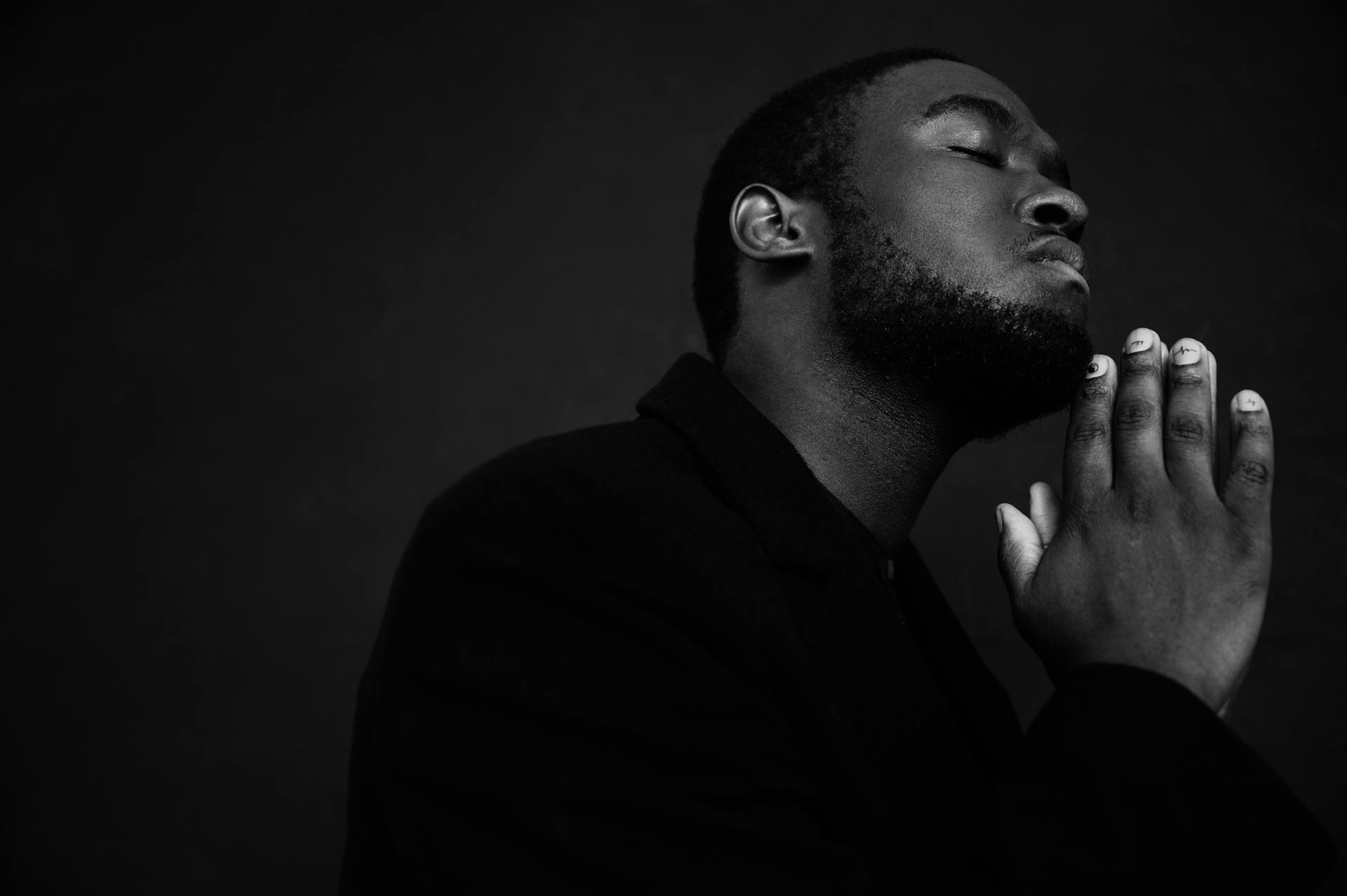
Have you ever heard the term "Type A personality" and wondered what it meant? This phrase is often used to describe individuals who are highly driven, competitive, and perfectionistic. They are often characterized by their intense ambition, strong work ethic, and tendency to take on multiple projects at once.
While being a Type A personality can have its advantages, such as accomplishing goals quickly and efficiently, it can also lead to high levels of stress and burnout. In this article, we will explore what it means to be a Type A personality and provide practical tips for managing stress and maintaining a healthy work-life balance. Whether you identify as a Type A or simply want to learn more about this personality type, this survival guide is for you.
Different Personalities and Why They Matter
Personality traits including competitiveness, time urgency, and work hard are often associated with Type A personalities. This personality type tends to be highly organized, ambitious, and driven towards career success. In contrast, Type Bs tend to have a more relaxed perspective on life, avoiding social interaction, and experience unique challenges.
However, while Type As may experience real pride in their accomplishments, their personality traits can also create significant stress. Negative emotions such as excessive worry and negativity can have a negative impact on their health. Fortunately, there are effective ways to manage these negative emotions.
On the other hand, Type Bs tend to avoid stress by nature. Fortunately for them, they tend not to experience the same negative emotions or stress levels as Type As. However, this personality type may struggle with motivation or drive when it comes to achieving career success. Understanding these different personalities and how they interact with the world around them is crucial for creating a successful life both professionally and personally.
Expand your knowledge: Charismatic Traits
Discovering the Various Facets of Personality
Categorizing personalities is a common way of understanding the various facets of one's identity. Personality types can be broadly classified into two categories: type A and type B. Type A individuals are known for their competitive nature and intense drive to succeed, while type B individuals tend to be more laid-back and relaxed. Understanding these different personality types can help us better understand ourselves and the people around us. Let's explore the traits that make up a type A personality in more detail.
1. The Big Five personality traits
The Big Five personality traits are a framework used to describe different aspects of an individual's personality. These traits include openness, conscientiousness, extraversion, agreeableness, and neuroticism. Each of these traits measures different aspects of a person's behavior, thoughts, and feelings. Creativity is often associated with openness while responsibility measuring extraversion and assertive agreeableness refers to showing respect finally things.
2. Myer-Briggs Type Indicator
The Myers-Briggs Type Indicator is a pre-employment test that measures how people perceive the world and make decisions. This complex test results in four letters, representing different personality traits. Understanding your personality type can be helpful in managing people and relationships, but it's important to remember that these tests can be easily manipulated by people looking for specific results. Read on to learn more about the fascinating world of type A personalities.
3. 16 Personality Types
If you've ever wondered about your personality type, the Myers-Briggs model identifies 16 distinct combinations. These personality trait clusters can be evaluated in multiple ways leading to valid results. The personality test model evaluates 20 trait scales independently, providing three-dimensional insight that can be useful for managing teams or in hiring success. Best of all, this information is presented in a simple format that's easy for anyone to understand.
The Fascinating Traits of a Type B Personality
Type B personalities are often overshadowed by their type A counterparts, but they have some fascinating traits that shouldn't go unnoticed. These individuals are more laid-back and relaxed, preferring to take life at a slower pace. While they may not be outgoing energetic or as much of a fast-paced individual as type A's, they are good relationship-builders and prioritize connections with others over achievements words. Compliments acknowledgement is an important thing for them, which makes them great friends and partners who value the people in their lives above all else.
1. Type B personality traits
While most people are familiar with the Type A personality characteristics, there is also a Type B personality to consider. Unlike Type A personalities who thrive on competition and constant productivity, Type B personalities tend to be more laid-back and take things at their own pace. They are often described as idea people dreamers, and while they may have a short attention span, they can be very creative and imaginative. For those looking for a different approach to life, exploring Type B personalities type might be worth considering.
2. How to test Type B personality
If you're looking to hire success type B personalities, a personality test helps you find these easy-going, optimistic, creative team players who feel comfortable surrounding themselves with others. The good balance of personality traits that type Bs possess can provide valuable insights for managing potential team members. This test lets you identify those who are not impulsive or needy but are instead reliable and calming forces within the workplace.
3. How to deal with Type B personality at work
Dealing with a Type B personality at work can be challenging, especially for those who are used to being in a Type A environment. To put Type B individuals at ease, spend time working with them in collaborative situations and avoid directly putting them in solitary positions. Recognize their achievements with awards, plaques, and certificates as people love public recognition, but be careful not to humiliate them in social settings as appearing uninvolved or nonsocial types can distract attention from their successes and make them appear unsuccessful or even unacceptable.
4. The best careers for Type B personality include:
If you are a Type B personality, then you might excel in careers that involve socializing and networking. Some of the best career options for your personality type include public relations, personnel interviewer, professional hostess, recreation director, and party planner. These jobs allow you to interact with other people and take charge of social events or projects. Keep reading to learn more about the characteristics of Type B personalities and how they can thrive in these careers.
Key Takeaways: Type A’s Can Thrive by Slowing Down and Reflecting
Type A personalities are practically destined for success due to their unmatched work ethic and passionate curiosity. However, they often sacrifice their mental well-being and interpersonal relationships in the process. To avoid sacrificing these important aspects of life, setting boundaries is crucial. This includes delineating work areas, such as having a home office, and in personal life setting strict work schedules and reducing device time.
Work-life balance is essential for a deep breathing type, as unfortunate association with aggressive communicators in tense situations can lead to stress and negatively impact one's emotional state. Overcoming perfectionism by accepting that it's okay to make mistakes and deflecting blame from others can help foster a sense of appreciation for minor achievements. Additionally, taking responsibility for one's high expectations and learning to feel appreciated even without achieving things perfect is important for mental health.
Type A individuals who live fast need to prioritize pursuing success while also scheduling stress relief practices into their weekly plan. Mastering to-do lists by rethinking daily tasks can lead to more fulfilling work while still crossing off important things on the list. Ultimately, this type has the drive to push society forward but should remember that slowing down and reflecting are key components of productivity.
1. If you liked this article...
If you enjoyed learning about type A personality, there's plenty more to explore! Check out our article on 20 scientific tips to beat zoom fatigue or discover what makes a good manager based on the big 5 traits. You can even take our free personality quiz to learn more about your own personality type. And if you're preparing for an interview, don't miss our guide on 14 easy interview body language hacks to avoid any condescending body language showing.
Different Personalities: Type A and Type B

Type A and Type B are two personality types that have distinct working styles. Type As are a pair goal-oriented future-thinking type known for their drive and competitiveness. They are the controlling type, always striving for perfection in everything they do. Conversely, present-focused Type Bs are more relaxed, laid back individuals who don't care as much about deadlines or reaching goals.
While Type As tend to be self-motivated types, Type Bs tend to focus on forging strong relationships with others. They thrive in team-focused environments where they can work collaboratively and creatively towards a common goal. However, both personality types excel understanding how to work well with others and achieve success through hard work.
When it comes to deep dive into these different personalities types, it's essential to remember that no one is entirely one or the other. Most people fall somewhere on the spectrum between the two extremes of Type A and Type B. Understanding your own personality type can help you play to your strengths while improving any weaknesses you may have when working with others of different personality types.
The Truth About Type A Personality: Debunked!

For decades, people have been labeled as having a "type A personality" based on certain characteristics. But is this an accurate portrayal of human behavior? Recent studies by social psychology suggest that lumping people into separate types is an outdated practice. Instead, researchers suggest that people possess nuanced characteristics that can't be categorized under one specific personality type.
Defining a single personality type doesn't help paint an accurate picture of who we are as individuals. Rather, separating people into specific traits provides a better way to understand our unique personalities. For example, some traits may put us at a greater risk for health problems and higher stress levels. On the other hand, other traits may turn out to be protective factors. We need to look at these separate traits instead of grouping them together in broad categories like "type A."
It's important to note that not all higher stress levels are due to type A personalities; rather, people with certain traits tend to experience stress more often. Furthermore, it's essential not to overlook the fact that those we label as having "type B" or even "type C" personalities possess plenty of higher-level characteristics too. In conclusion, labeling someone as a type A personality is no longer considered an accurate depiction of their true nature and shouldn't be used as such in modern times.
Discovering the Traits of a Type C Personality
Discovering the Traits of a Type C Personality: Unlike the type A personality, the type C personality is a detail-oriented individual who values accuracy and rationality. They are more focused on logic people than emotions, which can make objectivity difficult when it comes to making decisions. Type C individuals have a strong desire for facts and accuracy in all aspects of life and prefer to let the chips fall where they may based on these factors rather than relying on emotional impulses.
1. Type C personality characteristics
While Type A personalities are known for being highly competitive and ambitious, Type C personalities display considerable variations in their behavior. These individuals are typically introverted and detail-oriented, which can make them excellent problem-solvers. However, they can also be prone to anxiety and worry, making it important for them to practice self-care and stress-management techniques. Overall, understanding the different personality types can help us relate better to others and improve our own well-being.
2. How to test Type C personality
If you're looking to hire success type C personalities, a personality test helps to quickly assess their detail-oriented focus ability, planning skills, and social inhibition conflict avoidance. This type of personality is known for being analytical, cautious, and reserved. By using a personality test, you can find people who excel in tasks that require attention to detail and planning while avoiding potential conflicts.
3. Type C personality at work
Type C personalities tend to differ from Type A in that they prioritize quality control over personal expectations met. They are careful, resourceful and excellent thinkers, making them an asset to any job candidate shortlist. Thoughtful interview questions are necessary for identifying these candidates as they often provide a carefully rehearsed response. Those with Type C personalities excel in managerial roles, decision-making and public roles type of positions that require creative thinking based on originality cleverness and detailed orientation. Patience and a focus on facts are meticulously prepared, making for an exceptional addition to any team or workplace environment.
4. How to deal with Type C personality at work
Type C personality traits can play valuable roles at work, but they require determination to handle important tasks. When dealing with Type C colleagues or employees, it's important to understand their need for quiet solitude and their tendency towards uncontrolled emotions or irrational acts. By avoiding distracting people and providing necessary support, Type C personalities can thrive in leadership positions.
5. Which jobs attract a Type C personality?
If you have a Type C personality, you may find yourself drawn to jobs that require attention to detail and precision. Some jobs that suit this personality type include investigator police crime scene private, technical support, research scientist, game designer, and data analyst. These careers allow for a methodical approach to work tasks and require logical thinking and analysis.
What is a Type D personality?
A Type D personality takes a slower, easier pace in life and tends to seek security more than excitement. They prefer repetitive task days and are skilled likewise. Unlike Type A personalities who thrive on change, those with a Type D personality tend to minimize change and prefer when rules don't change. But what exactly does it mean to have a Type D personality? Let's explore further.
1. Type D personality traits
Type D personality traits are the opposite of Type A personalities. While previous personalities were quick to react and strive for perfection, Type D individuals are shy, low-key, and avoid confrontation. They find plenty of comfort in being consistent and dependable. If you're interested in learning more about how different personalities can shape our lives, keep reading!
2. How to test Type D personality
If you're curious about testing for a Type D personality, you're in luck! Type D individuals are highly trustworthy compassionate and deep thinkers. However, they often struggle with low self-confidence. For those looking to hire success types, administering a personality test that assesses these traits may be helpful. Keep reading to learn more about the characteristics of a Type D personality and how to identify them.
3. How to deal with Type D personality at work
Dealing with a Type D personality takes patience and understanding. Their natural pessimism and social comfort issues bring unique challenges to the workplace, but their hard-working nature and compassion are valuable strengths in solving problems and reducing risk. Creating a calm work atmosphere and allowing for frequent change can help alleviate their low risk tolerance, while avoiding pushy people and aggressive behavior will contribute to a more relaxed atmosphere overall.
4. Which jobs attract a Type D personality?
Type D personalities are typically introverted, sensitive, and prone to anxiety. Jobs that might attract this type of personality include secure team positions like HR managers or social workers, as well as roles in financial services like insurance agents. Assembly line workers, security guards, and customer service representatives may also appeal to Type D personalities who prefer routine and structure in their work environment.
Discover Your Unique Personality with These 4 Basic Types
Are you curious to know your personality type and how it affects your day-to-day basis? The Hire Success System automatically generates a personality overview report based on the Hire Success Personality Profile form filled out by the test taker. This is used in the hiring process to determine if potential employees' values and traits align with the company's expectations.
The Hire Success overview report variations include a base trait information bar chart, primary personality type, and expanded traits section. The personality type is determined by analyzing the background information and responses of the test taker. These classic descriptions designed for each personality type are specific to the traits found in that particular type.
It's important to note that while traditional types expect similar descriptions printed, Hire Success system differs from these descriptions because it determines traits independently. This means that while some traits may be similar between certain types, others may differ depending on individual responses. With this in mind, the summary report provides a personalized personality description tailored to each test taker's unique combination of values and traits.
Possible Health Risks Associated with Type A Behavior
Personality types are a fascinating aspect of human behavior that has been studied for decades. One of the most well-known personality types is the Type A personality, which is characterized by a competitive, driven, and sometimes aggressive lifestyle type. While this personality has many positive traits that can be beneficial in certain situations, there are also some challenges including increased stress levels and stress-related health problems.
Research shows that people with Type A personalities experience higher rates of high blood pressure and heart disease. Recent analysis indicates that TABP specifically anger may play a significant role in the development of coronary heart disease. These findings suggest that individuals who exhibit these characteristics may need to take extra steps to protect their health.
Jobs create significant amounts of stress, particularly for those who work in demanding or stressful environments. Stressful demanding jobs can lead to social isolation and poor relationships putting people at greater risk for increased stress-related health problems. Those with Type A personalities are particularly at risk because they tend to be more susceptible to job stress type environments than other personality types.
1. Type A Personality Example
A type A personality is someone who is driven, ambitious and competitive. An example of a type A personality would be someone who prioritizes over-achieving in their professional life, often working long hours and striving for perfection. This personality type tends to be highly organized, detail-oriented, and often sets high expectations for themselves and others around them.
Understanding the Different Personalities: A, B, C, and D
Personality theories have long been used to explain behavior patterns that shape peoples' unique character traits. One popular personality model started with cardiologists Meyer Friedman and Ray Rosenman's research on high-stress archetypes. The doctors found a link between this personality type and heart disease, leading to a debunked theory due to purported funding by the tobacco industry. Thankfully, modern perspectives on personalities exist that include type A versus type B archetypes.
A large-scale 2017 study found that specific personality types align better with certain job types than others. For example, type As may earn more in fast-paced deadline-driven careers where they enjoy lots of responsibilities communicating within a large team towards accomplishing goals. Type Bs, however, may enjoy a more flexible job or laid-back work environment where they can let their creative flow take over from time to time; perfect for the modern entrepreneur or c-level stereotype. Regardless of which archetype one finds relatable traits within - it's important to remember that personality types are highly nuanced and not everyone falls into one neat category!
Overall, understanding personality concepts such as introversion versus extroversion over-simplifies social preferences and should be taken with a grain of salt when trying to understand different personalities. The prevailing personality theory today includes the big 5 personality traits: openness, conscientiousness, extraversion/introversion (but not as an either/or), agreeableness and neuroticism/emotional stability. Knowing which traits you lean towards can help guide career choices or even personal growth paths. In any case - embracing our unique personalities is the cornerstone of success in life!
Frequently Asked Questions
What are Type A B C and D personality descriptions?
Type A, B, C, and D are personality descriptions used to categorize individuals based on their behavioral traits. Type A is characterized by being competitive and time-conscious, Type B by being relaxed and less stressed, Type C by being detail-oriented and introverted, and Type D by being anxious and prone to negative emotions.
What is the difference between Type C and Type D personality?
Type C personalities are characterized by their introverted nature, tendency to suppress emotions, and desire for order and structure. Type D personalities, on the other hand, are marked by their negative emotions, social inhibition, and tendency towards worry and anxiety.
What personality traits do type a people have?
Type A people are characterized by their drive, ambition, competitiveness, impatience, and tendency towards perfectionism.
What is the personality of an individual?
An individual's personality refers to their unique set of traits, characteristics, and behaviors that shape how they interact with the world around them. It is influenced by a combination of genetics, upbringing, environment, and life experiences.
What are the 4 disc personality types?
The 4 DISC personality types are Dominance, Influence, Steadiness, and Conscientiousness. Each type has its own unique characteristics and behaviors that can impact communication and relationships. Understanding these types can lead to better collaboration and productivity in the workplace.
Featured Images: pexels.com


